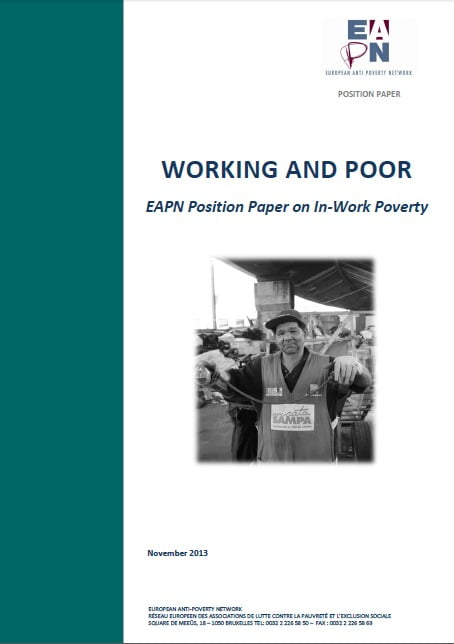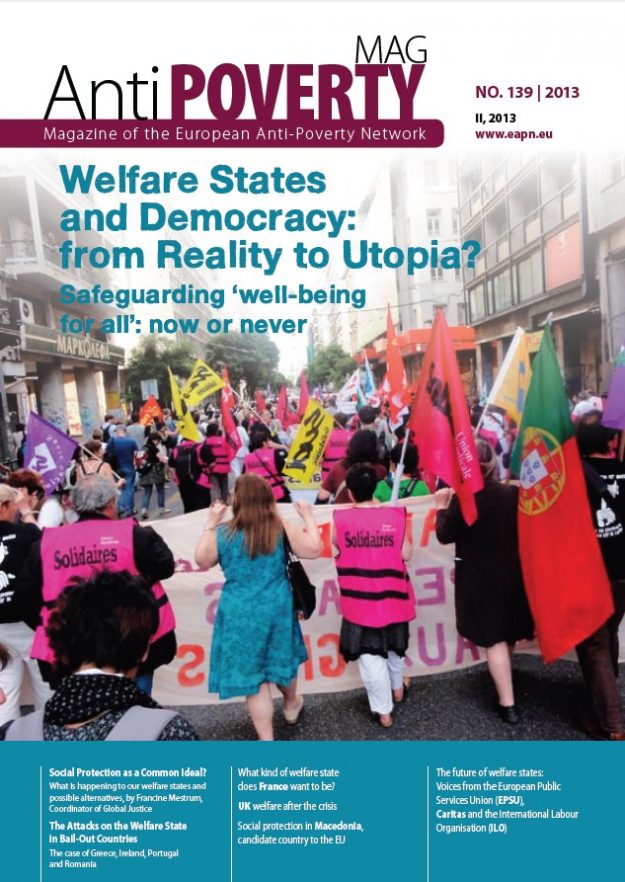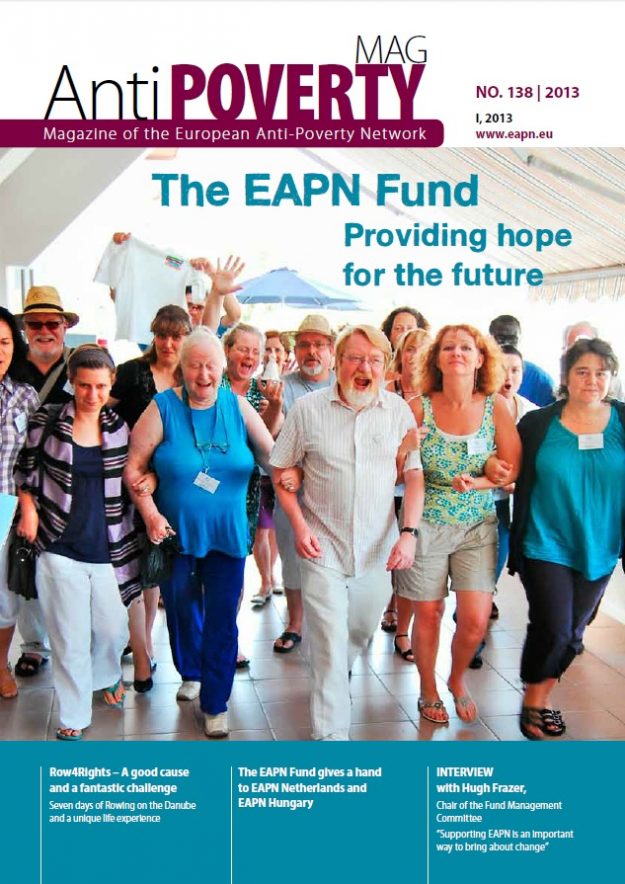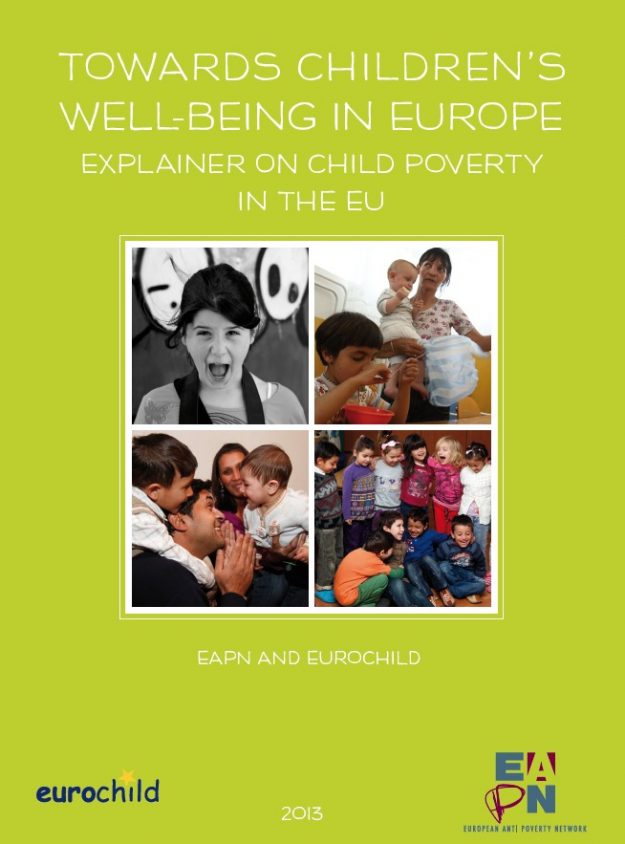WORKING AND POOR: EAPN’s position paper on in-work poverty
In-work poverty means that some people are still experiencing poverty, despite holding a job. From 2010 to 2013, EAPN has closely monitored and mapped the situation in Member States, as well as the effect of different policy options towards solving the situation, or making it worse. The position paper aims to set out EAPN’s developing analysis of the issue of in-work poverty, and to contribute to the debate, highlighting the different situations across Europe, including the role of low pay, the structure and increased segmentation of the labour market, the role of benefit and taxation policies, and individual characteristics. Building on the extensive work done by EAPN members, key concerns are outlined, and the impact of various policies in different countries discussed, including the negative impact of the economic crisis and austerity measures.




